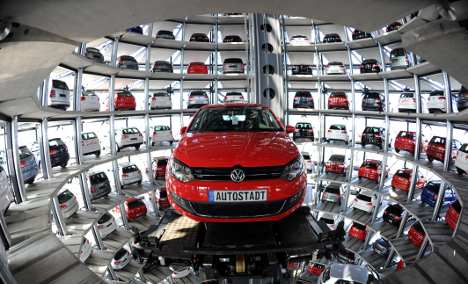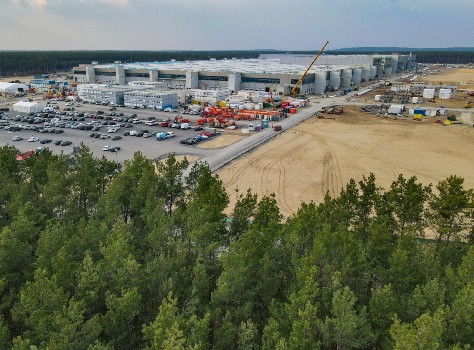Financial analysts had expected earnings of €733 million, with the results sending VW shares soaring in midday trade on the Frankfurt stock exchange.
Although the second quarter of 2009 was quite weak, which helped the comparison, earnings in the April to June period were also more than double that of the first three months of this year.
A jump in deliveries saw second-quarter sales jump by an annualised 21.9 percent to €33.16 billion, while operating profit in the three months came to almost €2 billion, VW said.
VW maintained its full-year sales target, that of surpassing the 6.3 million vehicles sold last year, and its operating profit target of more than €1.9 billion, a level it has already exceeded.
The group – which aims to become the world’s leading automaker by 2018 – warned in a statement however that second-half sales would not be as strong as those in the first six months of the year.
Several automakers, including French group PSA and Nissan of Japan, have also posted strong second quarter results as markets in Europe and the United States recover and growth continues in China, the world’s biggest car market.
VW’s second quarter sales of 1.86 million vehicles put it neck-and-neck with Toyota, currently number one worldwide, which sold 1.9 million according to the Japanese economic daily Nikkei.
For the six months to June, VW’s operating profit climbed to €2.8 billion from 1.2 billion in first half 2009 as sales gained 20.7 percent to €61.8 billion.
A breakdown of the first-half data showed that VW’s luxury brand Audi is still its main breadwinner, with an operating profit of €1.3 billion.
The VW brand contributed €1.02 billion, with heavy truck maker Scania on €577 million and lower-priced automaker Skoda providing €227 million.
Losses were reported by the Spanish brand SEAT, with €157 million, and the limousine maker Bentley, at €109 million.
The operating profit and loss numbers do not take Chinese earnings into account, even though it is VW’s main market, because like western rivals, VW operates there via partnerships with Chinese companies.
The Chinese operations alone earned a profit of€ 804 million in the first half of the year, a gain of 173 percent, VW said.
Shares in the automaker shot up 3.91 percent to €81.66 in midday trading on the Frankfurt stock exchange which was 0.62 percent higher overall.
“First-half earnings were clearly in excess of our expectations,” chairman Martin Winterkorn said.



 Please whitelist us to continue reading.
Please whitelist us to continue reading.
Member comments